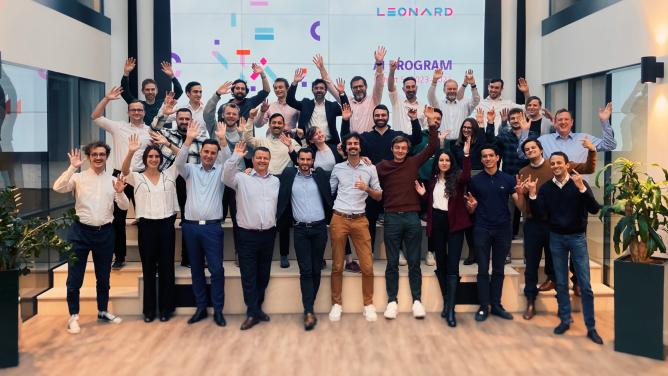Not to be outdone, our neighbors over in Italy and Spain can already count 32 and 20 million installations respectively, thanks to Enel. And in a different order of magnitude, China will be installing 500 million smart meters as of 2018… Today, as technology has become widespread, reservations have waned, and more and more entrepreneurs are taking an interest in its potential.
Howz looks after your loved ones
Recent Prix EDF Pulse winners, Howz is a British-made smart home device that’s designed for elderly people living alone. The software analyzes energy usage data taken from a smart meter, using it to establish a person’s routine. The sensor can detect any sudden deviation in energy consumption – which could be an indicator of an incident in the home. Howz then sends an alert to relatives. It’s a less intrusive way to keep an eye on your loved ones.
Greenbird has the answer to data integration problems
Smart meters generate a significant amount of data. IBM estimates that there is a 3,000-fold increase in data, which if not correctly managed, consolidated and secured, this mountain of data is useless. Greenbird looks after this crucial data integration step. Metercloud.io is a Software as a Service (SaaS) with a cloud infrastructure, that enables utilities to quickly implement flexible IT architectures for modern smart meter operations. The company has already served utilities covering 80% of the market in Norway, and has recently raised 5 million dollars to expand internationally….
Sigora Haiti: personalized meters and pre-paid energy
Not everybody has the same energy needs worldwide. In Haiti, a country often hit by nature’s caprices and the pain of poverty, only 25% of the population is connected to the national electrical grid. Sigora has created a microgrid system (a local electricity network that can function independently from the centralized electrical grid) that is connected to a pre-paid smart meter. The client can measure their consumption at any time and will only pay for what they use. The system adapted for people on low incomes is proving to be popular: the current pilot project in the small village of Môle-Saint-Nicolas has connected 5,000 people, and an agreement has been signed to roll the initiative out to a further 135,000 people.


